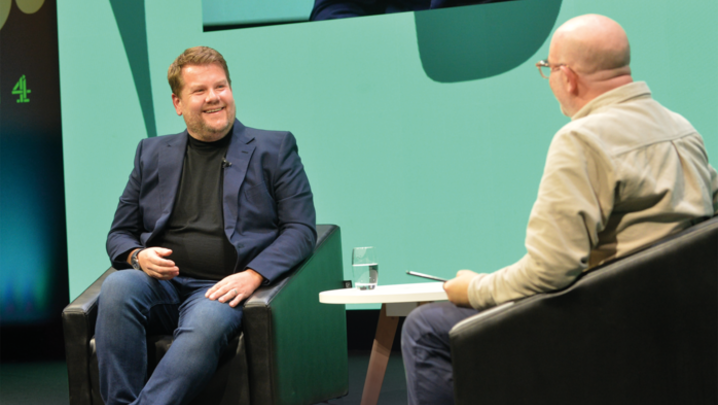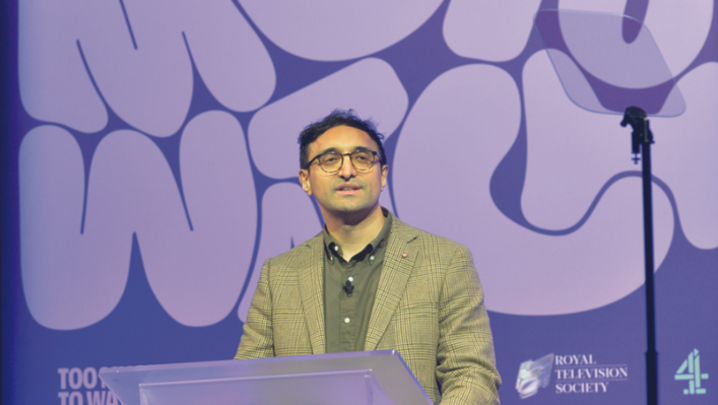Steve Clarke talks to Andrea Scrosati, the COO of Fremantle, as he outlines the shape of the post-lockdown world for producers
As one of the world’s production behemoths, Fremantle – whose shows range from Pop Idol via Neighbours to My Brilliant Friend – is determined to think laterally as it adapts to life in the age of Covid-19.
In several countries, Fremantle continued making content throughout lockdown. “We’re a truly global company, so we never actually stopped producing,” says Andrea Scrosati, the firm’s COO. He is normally based in London but has been based in his native Tuscany for the past two months or so.
In Australia, shooting for Neighbours suffered a two-week hiatus. The internationally famous soap is now back in business, albeit in what its producers hope is a Covid-compliant way of working.
In Germany – where Fremantle’s drama serial Gute Zeiten, Schlechte Zeiten (Good Times, Bad Times) is long established as an RTL staple – Scandinavia and Italy, production continued throughout the various lockdowns. “All our daily dramas, with one exception, are back on air,” he says. “They are filmed in contained locations, have local casts and the scripts can be adapted so they are compliant with social distancing.”
In Italy, a weekly late-night talk show, made by Fremantle for Sky Italia, quickly reinvented itself. The guests on EPCC Live are interviewed remotely but there is a live band in the audience-less studio. It even features a running gag related to the two-metre social distancing rule.
Not that making TV shows in the new normal is a laughing matter. “We’re focusing on the best way to produce in a Covid-compliant way,” insists Scrosati. “It’s not about just getting back into production, but doing it the right way. All companies need to behave responsibly.
“In future, people will remember how companies behaved during the pandemic. Decisions made by individuals make all the difference. Our culture and values are important to us as a business.”
High-end drama is more problematic than soaps, involving, as it does, international casts, global travel and painstaking and expensive location filming. Recently, Fremantle managed to complete work on the keenly anticipated six-part Danish crime series The Investigation, directed by the Oscar-nominated Tobias Lindholm, and which was pre-sold to the BBC, among other broadcasters.
Fremantle still plans to shoot new scripted series in Israel and Italy this summer. There is one important caveat – all these shows have casts that are either local or live in countries near to where the shows will be filmed.
One country where Fremantle seems unlikely to film new dramas any time soon is the UK, where the Government recently introduced controversial 14-day quarantine rules for people arriving from overseas by air, sea or rail. “We’re still waiting for clearer guidance,” says Scrosati.
He was hired by Fremantle two years ago, not least because of his reputation for commissioning top-notch drama at Sky Italia, including such gems as The Young Pope and Gomorrah. As a signal that Fremantle intends to do more work in this genre last year, he forged a production deal with True Detective producer Richard Brown, an executive producer on Hulu’s adaptation of Catch 22.
One of the company’s most ambitious shows currently in production is Mosquito Coast, an adaptation of the Paul Theroux novel by Luther creator Neil Cross, a commission from Apple TV+.
It is unclear how projects on this scale will be produced in a Covid-compliant way. One key issue concentrating producers’ minds across the industry is the difficulty of insuring sets against future lockdowns that might disrupt production.
Scrosati hopes that, globally, governments will step in, because insurance companies are reluctant to insure sets against the impact of coronavirus. “The precedent is 9/11 and airlines,” he says. “Another precedent was insuring homes for earthquake damage in California. Private companies wouldn’t insure domestic properties, so the state of California stepped in.”
It is vital that commissioners are prepared to shoulder some of the risks. “At the moment, there has been a mixed response,” says Scrosati. “To be fair, Netflix is willing to share more of the risks than some other companies.”
He adds: “You have to realise that, in certain territories, though not in all, governments have put in place schemes that are supporting the industry.”
As for the medium-term prospects for high-end drama, Scrosati forecasts a period of up to six months when there could be a shortage of these shows. “If there is an acceleration in production, this could be reduced to two or three months,” he says.
Of course, producers thrive on being creative. Expect more CGI and other special effects in TV drama (this kind of work can be done remotely), says Scrosati. “Creators and producers need to adapt and understand that the world has changed,” he emphasises. “A lot of the projects that we were pitched before Covid were all about scale. Some of those projects are now more challenging.”
The good news for Fremantle is that, while several of its productions have been put on hold as a result of the crisis, only a few have been cancelled. “Obviously, the way we work has changed, but I am optimistic,” says the Fremantle COO. “We work in an industry that is based on ideas. As a species, we have an extraordinary capacity and resilience to overcome adversity. People want to watch content more than ever.”
One of the first lockdown shows to air in the UK was Jamie Oliver’s Keep Cooking and Carry On, broadcast by Channel 4 and distributed globally by Fremantle. Oliver and his family filmed the programme at home.
In Spain, the company produced Balcony Stories, shown by Viacom-owned channels in Europe, the Middle East and Africa. The series deployed user-generated content to portray positive stories during quarantine.
Scrosati, however, believes that audiences’ appetites have now moved on beyond this type of fare and thinks his experience at Sky Italia will prove to be vital in the weeks and months ahead. “At Sky, we were always thinking of the customer,” he recalls. “That is something I never forget here at Fremantle when we work on a new show.
“Content will become still more customer-focused in future. Also, people’s willingness to use digital devices to conduct their lives – until the crisis my mother never bought anything online – will further boost the popularity of on-demand services.
“I think there will be more sport on demand. In the UK, Amazon has already got into that market.
“This does not mean that linear broadcasting doesn’t have a great future. The crisis has shown that people want to watch TV collectively, but expect linear broadcasters to invest more in their on-demand services.
“I think we’ll see more non-scripted shows on SVoD platforms. The dating show Too Hot To Handle, produced by one of our UK labels, Talkback, was the most-watched show on Netflix in 20 territories for nearly two weeks during lockdown.
“Generally, people will want shows that provide more escapism and the opportunity to relax. Pure entertainment that can be shared with friends and family will be at a premium at a time when people are restricted in meeting with them.”
Photo credit: Sky Italia







